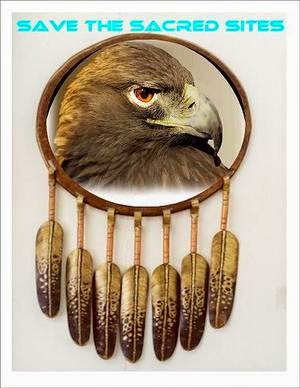I Am Not a Dog
Read more at: http://www.huffingtonpost.com/ian-pearl/i-am-not-a-dog_b_326137.html
Ian Pearl
Posted: October 19, 2009 02:14 PM
Read more at: http://www.huffingtonpost.com/ian-pearl/i-am-not-a-dog_b_326137.html
am not a "dog." That's what health insurance executives called me because I have a disease. I'm also not a "trainwreck," another term they used for members like me.
Soon after I was born in 1972, I was diagnosed with muscular dystrophy. By the time I was six years old, I was confined to a wheelchair. Doctors doubted I would survive, but I inherited my parents' determination, and I proved them wrong.
I was the first wheelchair-bound student "mainstreamed" in the schools of Broward County, Florida. I became a poster child for the Muscular Dystrophy Association and president of my high school class. I entered college in 1990 with plans to work in politics and patient advocacy, but at 19, I had a severe setback and I was confronted with a stark choice. My survival would require a machine to breathe and round-the-clock nursing care.
A breathing machine usually means life in a nursing facility. But my father's small business had health insurance from Guardian Life Insurance Co., which promised "Solutions for Life." The health policy had no lifetime benefit cap and covered home nursing care. Relying on that contract with a 149-year-old company, I decided to go on a mechanical ventilator for the rest of my life.
Since then, I've endured life-threatening medical complications and long hospitalizations. I've lost my privacy and ability to travel. But I never regretted my decision to live, to continue to learn and write, and to share in the lives of family and friends.
After decades of medical emergencies, we still weren't prepared for the latest crisis -- this one created by the same insurance company that once saved my life. Guardian abruptly withdrew our health plan from all policyholders in New York where my father's business is based. Guardian offered a 'replacement' plan with low benefits and no home nursing benefits. They knew that I would never survive with such a plan, but they didn't care.
Suspecting that this action was related to the high cost of my care, we filed a lawsuit and have asked the U.S. Department of Health and Human Services to enforce existing federal laws and require Guardian to continue my health plan. Without federal intervention, I will lose this insurance, and that would be a death sentence.
Our lawsuit uncovered insurance company documents that confirmed my suspicion that I'm a target of discrimination. The documents revealed Guardian had compiled a "hit list" of its costliest members, including patients with muscular dystrophy, multiple sclerosis, brain injury, and paralysis. Guardian executives referred to us all as "dogs" and "trainwrecks," and they debated how and when to dump us from the rolls. Laws prohibited the cancellation of the individual members with serious chronic health problems, so Guardian opted to cancel the plan for all members of this specific health plan in New York, an action that violates federal law.
Although my medical costs constituted a minuscule fraction of Guardian's profits, the company had been trying for 15 years to sidestep its obligations to me. The insurer hired private investigators who searched in vain for evidence to justify canceling the policy. Guardian had similarly targeted the other "dogs" without success. Finally, Guardian launched the unprecedented strategy of withdrawing an established plan throughout an entire state in order to discontinue a few costly members.
When we checked the private insurance market to see my options, we discovered that benefits covering the care I need to survive are no longer available to small businesses. We learned that the insurance industry has replaced risk management with risk elimination, offering only benefits that guarantee permanent profitability. The human toll is not a factor in their calculations.
While all this was going on, Guardian reported $7.5 billion revenue, net income of $437 million, and available capital of $4.3 billion in 2008. Unlike small businesses, Guardian's financial strength remained unscathed by the economic downturn.
The health insurance industry remains unchecked, unaccountable and uninterested in the health needs of Americans. Nothing is more important than profit.
Don't think what happened to me was unusual. Insurance companies regard everyone as potential dogs and trainwrecks. They won't hesitate to use similar tactics to avoid your claims if someone in your family suffers a catastrophic illness. Insurers don't like it when sick people live too long and cost too much.
I know firsthand that America's health care system has the capacity to provide incomparable, life-saving care. But I am living proof that insurance-company "death squads" meeting behind closed doors routinely make life-sustaining benefits vanish.
Without stricter enforcement of existing laws and the creation of a public health insurance option to keep private insurers honest, it's only a matter of time before you or someone you love will become the next victim.
Read more at: http://www.huffingtonpost.com/ian-pearl/i-am-not-a-dog_b_326137.html
Wednesday, October 21, 2009
Subscribe to:
Post Comments (Atom)






No comments:
Post a Comment
Note: Only a member of this blog may post a comment.